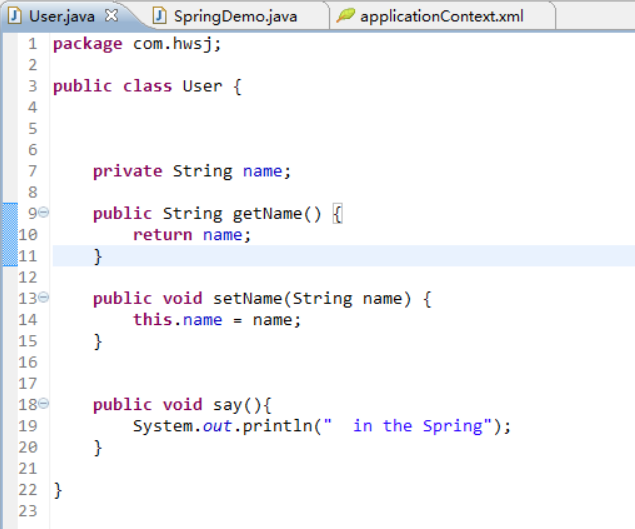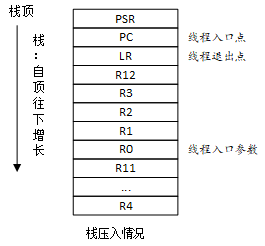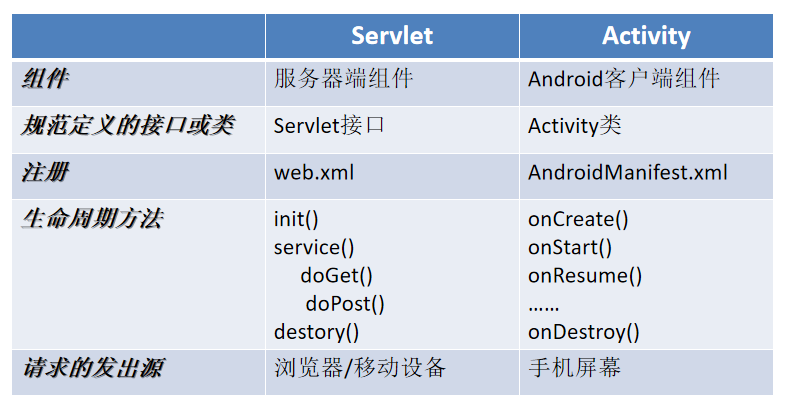STL 容器使用方法
STL容器使用方法
- vector的使用
vector的主要方法有:constructor(vector()),push_back(),pop_back(),erase(),clear(),insert(),begin(),end(),size(),empty(),front(),back(),resize(),[]
#include <iostream>#include <vector>#include <algorithm>using namespace std;int main(){int i = 0;vector<int> iv(2, 9); //构造函数,两个大小,初始化为10cout << "size = " << iv.size() << endl;cout << "capacity = " << iv.capacity() <<endl;iv.push_back(1); // 插入元素cout << "size = " << iv.size() << endl;cout << "capacity = " << iv.capacity() <<endl;iv.push_back(2);cout << "size = " << iv.size() << endl;cout << "capacity = " << iv.capacity() <<endl;iv.push_back(3);cout << "size = " << iv.size() << endl;cout << "capacity = " << iv.capacity() <<endl;iv.push_back(4);cout << "size = " << iv.size() << endl;cout << "capacity = " << iv.capacity() <<endl;for( int i = 0; i < iv.size(); i++) //遍历元素,输出{cout << iv[i] << ' ';}cout << endl;iv.push_back(5);cout << "size = " << iv.size() << endl;cout << "capacity = " << iv.capacity() <<endl;for( int i = 0; i < iv.size(); i++){cout << iv[i] << ' ';}cout << endl;iv.pop_back(); // 弹出元素iv.pop_back();cout << "size = " << iv.size() << endl;cout << "capacity = " << iv.capacity() <<endl;iv.pop_back();cout << "size = " << iv.size() << endl;cout << "capacity = " << iv.capacity() <<endl;vector<int>::iterator ivIte = find( iv.begin(), iv.end(), 1); // 定义迭代器,并查找if( ivIte != iv.end()){iv.erase( ivIte);}cout << "size = " << iv.size() << endl;cout << "capacity = " << iv.capacity() <<endl;for( int i = 0; i < iv.size(); i++){cout << iv[i] << ' ';}cout << endl;ivIte = find(iv.begin(), iv.end(), 2);if( ivIte != iv.end()){iv.insert( ivIte, 3, 7);}cout << "size = " << iv.size() << endl;cout << "capacity = " << iv.capacity() <<endl;for( int i = 0; i < iv.size(); i++){cout << iv[i] << ' ';}cout << endl;iv.clear();cout << "size = " << iv.size() << endl;cout << "capacity = " << iv.capacity() <<endl;return 0;}
运行结果:
size = 2
capacity = 2
size = 3
capacity = 4
size = 4
capacity = 4
size = 5
capacity = 8
size = 6
capacity = 8
9 9 1 2 3 4
size = 7
capacity = 8
9 9 1 2 3 4 5
size = 5
capacity = 8
size = 4
capacity = 8
size = 3
capacity = 8
9 9 2
size = 6
capacity = 8
9 9 7 7 7 2
size = 0
capacity = 8
list的使用
include
include
include
include
using namespace std;
int main()
{int i = 0;list<int> ilist;cout << "size = " << ilist.size() << endl;ilist.push_back(0);ilist.push_back(1);ilist.push_back(2);ilist.push_back(3);ilist.push_back(4);cout << "size = " << ilist.size() << endl;list<int>::iterator ite;for( ite = ilist.begin(); ite != ilist.end(); ++ite){cout << *ite << ' ';}cout << endl;ite = find(ilist.begin(), ilist.end(), 3);if( ite != ilist.end()){ilist.insert(ite, 99);}cout << "size = " << ilist.size() << endl;cout << *ite << endl;for( ite = ilist.begin(); ite != ilist.end(); ++ite){cout << *ite << ' ';}cout << endl;ite = find(ilist.begin(), ilist.end(), 1);if(ite != ilist.end()){cout << *( ilist.erase(ite)) << endl;}for(ite = ilist.begin(); ite != ilist.end(); ++ite){cout << *ite << ' ';}cout << endl;return 0;
}
运行结果:
size = 0
size = 5
0 1 2 3 4
size = 6
3
0 1 2 99 3 4
2
0 2 99 3 4
deque的使用
include
include
include
include
using namespace std;
int main()
{deque<int, allocator<int> > ideq(20, 9);cout << "size = " << ideq.size() << endl;for( int i = 0; i < ideq.size(); i++){ideq[i] = i;}for( int i = 0; i < ideq.size(); i++){cout << ideq[i] << ' ';}cout << endl;for( int i = 0; i < 3; i++){ideq.push_back(i);}for( int i = 0; i < ideq.size(); i++){cout << ideq[i] << ' ';}cout << endl;cout << "size = " << ideq.size() << endl;ideq.push_back(3);for( int i = 0; i < ideq.size(); i++){cout << ideq[i] << '';}cout << endl;cout << "size = " << ideq.size() << endl;ideq.push_front(99);for( int i = 0; i < ideq.size(); i++){cout << ideq[i] << ' ';}cout << endl;cout << "size = " << ideq.size() << endl;ideq.push_front(98);ideq.push_front(97);for( int i = 0; i < ideq.size(); i++){cout << ideq[i] << ' ';}cout << endl;cout << "size = " << ideq.size() << endl;
deque<int, allocator<int> >::iterator itr;itr = find(ideq.begin(), ideq.end(), 99);cout << *itr << endl;// cout << *(itr.) <<endl;return 0;}
运行结果:
size = 20
0 1 2 3 4 5 6 7 8 9 10 11 12 13 14 15 16 17 18 19
0 1 2 3 4 5 6 7 8 9 10 11 12 13 14 15 16 17 18 19 0 1 2
size = 23
0 1 2 3 4 5 6 7 8 9 10 11 12 13 14 15 16 17 18 19 0 1 2 3
size = 24
99 0 1 2 3 4 5 6 7 8 9 10 11 12 13 14 15 16 17 18 19 0 1 2 3
size = 25
97 98 99 0 1 2 3 4 5 6 7 8 9 10 11 12 13 14 15 16 17 18 19 0 1 2 3
size = 27
99
stack的使用
include
include
include
include
using namespace std;
int main()
{stack<int, list<int> > myStack;myStack.push(1);myStack.push(3);myStack.push(5);myStack.push(7);cout << myStack.size() << endl;cout << myStack.top() << endl;myStack.pop(); cout <<myStack.top() << endl;myStack.pop(); cout <<myStack.top() << endl;myStack.pop(); cout <<myStack.top() << endl;cout << myStack.size() << endl;return 0;
}
结果:
4
7
5
3
1
1
queue的使用
include
include
include
using namespace std;
int main()
{queue<int, list<int> > iqueue; //注意 两个 > 号不能连着出现,否则出错iqueue.push(1);iqueue.push(3);iqueue.push(5);iqueue.push(7);cout << iqueue.size() << endl;cout << iqueue.front() << endl;iqueue.pop(); cout << iqueue.front() << endl;iqueue.pop(); cout << iqueue.front() << endl;iqueue.pop(); cout << iqueue.front() << endl;cout << iqueue.size() << endl;return 0;
}
程序结果:
4
1
3
5
7
1
heap的使用
include
include
include
using namespace std;
int main()
{{// test heap 以vector为容器int ia[9] = {0, 1, 2, 3, 4, 8, 9, 3, 5};vector<int> ivec(ia, ia+9);make_heap(ivec.begin(), ivec.end());for(int i = 0; i < ivec.size(); ++i){cout << ivec[i] << ' ';}cout << endl;ivec.push_back(7);push_heap(ivec.begin(), ivec.end());for(int i = 0; i < ivec.size(); ++i){cout << ivec[i] << ' ';}cout << endl;pop_heap(ivec.begin(), ivec.end());cout << ivec.back() << endl; // return,但是没有删除ivec.pop_back(); //真正删除该元素for(int i = 0; i < ivec.size(); ++i){cout << ivec[i] << ' ';}cout << endl;sort_heap(ivec.begin(), ivec.end());for(int i = 0; i < ivec.size(); ++i){cout << ivec[i] << ' ';}cout << endl;}{// test heap,以array为底层容器int ia[9] = {0, 1, 2, 3, 4, 8, 9, 3, 5};make_heap(ia, ia+9);// array无法改变大小,因此不可以对满载的array进行push_heap()操作sort_heap(ia, ia+9);for( int i = 0; i < 9; ++i){cout << ia[i] << ' ';}cout << endl;}{// test heapint ia[6] = {4, 1, 7, 6, 2, 5};make_heap(ia, ia + 6);for( int i = 0; i < 6; ++i){cout << ia[i] << ' ';}cout << endl;}return 0;
}
程序结果:
9 5 8 3 4 0 2 3 1
9 7 8 3 5 0 2 3 1 4
9
8 7 4 3 5 0 2 3 1
0 1 2 3 3 4 5 7 8
0 1 2 3 3 4 5 8 9
7 6 5 1 2 4
priority-heap的使用
#include <iostream>#include <queue>#include <algorithm>using namespace std;int main(){//大顶堆int ia[9] = {0, 1, 2, 3, 4, 8, 9, 3, 5};priority_queue<int> ipq(ia, ia+9);cout << "size = " << ipq.size() << endl;for(int i = 0; i < ipq.size(); ++i){cout << ipq.top() << ' ';}cout << endl;while(!ipq.empty()){cout << ipq.top() << ' ';ipq.pop();}cout << endl;//小顶堆priority_queue< int, vector<int>, greater<int> >ipq_min(ia, ia+9);cout << "size = " << ipq_min.size() << endl;for(int i = 0; i < ipq_min.size(); ++i){cout << ipq_min.top() << ' ';}cout << endl;while(!ipq_min.empty()){cout << ipq_min.top() << ' ';ipq_min.pop();}cout << endl;return 0;}
程序结果:
size = 9
9 9 9 9 9 9 9 9 9
9 8 5 4 3 3 2 1 0
size = 9
0 0 0 0 0 0 0 0 0
0 1 2 3 3 4 5 8 9
- set和map的使用
set使用:
#include <iostream>#include <set>#include <algorithm>using namespace std;int main(){int i;int ai[5] = {0, 1, 2, 3, 4};set<int> iset(ai, ai+5);cout << "size = " << iset.size() << endl;cout << "3 count = " << iset.count(3) <<endl;iset.insert(3);cout << "size = " << iset.size() << endl;cout << "3 count = " << iset.count(3) <<endl;iset.erase(1);cout << "size = " << iset.size() << endl;cout << "3 count = " << iset.count(3) <<endl;cout << "1 count = " << iset.count(1) <<endl;set<int>::iterator ite1 = iset.begin();set<int>::iterator ite2 = iset.end();for( ; ite1 != ite2; ++ite1){cout << *ite1;}cout << endl;ite1 = find(iset.begin(), iset.end(), 3);if( ite1 != iset.end())cout << "3 found" << endl;ite1 = find(iset.begin(), iset.end(), 1);if( ite1 != iset.end())cout << "1 not found" << endl;// *ite1 = 9; 编译错误,只读迭代器无法修改对应的元素return 0;}
程序结果:
size = 5
3 count = 1
size = 5
3 count = 1
size = 4
3 count = 1
1 count = 0
0234
3 found
Map的使用:
#include <iostream>#include <map>#include <string>using namespace std;int main(){map<string, int> simap; // 以string为键值,以int为实值simap[string("jjhou")] = 1;simap[string("jerry")] = 2;simap[string("jason")] = 3;simap[string("jimmy")] = 4;pair<string, int> value(string("david"), 5);simap.insert(value);map<string,int>::iterator simap_iter = simap.begin();for( ; simap_iter != simap.end(); ++simap_iter){cout << simap_iter->first << ' ' <<simap_iter->second << endl;}int number = simap[string("jerry")];cout << number << endl;map<string, int>::iterator ite1;// 面对关联式容器,应该使用其所提供的find 函数搜寻元素,会比使用STL算法find更有效率ite1 = simap.find(string("mchen"));if( ite1 == simap.end())cout << "mchen not found" << endl;ite1 = simap.find(string("jerry"));if( ite1 != simap.end())cout << "jerry found" << endl;ite1->second = 9;number = simap[string("jerry")];cout << number <<endl;return 0;}
程序结果:
david 5
jason 3
jerry 2
jimmy 4
jjhou 1
2
mchen not found
jerry found
9
hashtable的使用:
include
include
using namespace std;
int main()
{hashtable<int, int, hash<int>, identity<int>,equal_to<int>, allocator<int> > iht(50, hash<int>(),equal_to<int>());cout << iht.size() << endl;cout << iht.bucket_count() << endl;cout << iht.max_bucket_count() << endl;iht.insert_unique(59);iht.insert_unique(63);iht.insert_unique(108);iht.insert_unique(2);iht.insert_unique(53);iht.insert_unique(55);cout << iht.size() << endl;hashtable<int, int, hash<int>, identity<int>,equal_to<int>, allocator<int> >::iterator ite = iht.begin();for( int i = 0; i < iht.size(); ++i, ++ite)cout << *ite << ' ';cout << endl;for( int i = 0; i < iht.bucket_count(); ++i){int n = iht.elems_in_bucket(i);if( n != 0)cout << "bucket[" << i << "] has "<< n << "elems." << endl;}for( int i = 0; i <= 47; i++){iht.insert_equal(i);}cout << iht.size() << endl;cout << iht.bucket_count() << endl;for( int i = 0; i < iht.bucket_count(); i++){int n = iht.elems_in_bucket(i);if( n != 0)cout << "bucket[" << i << "] has "<< n << "elems." << endl;}ite = iht.begin();for( int i = 0; i < iht.size(); ++i, ++ite)cout << *ite << endl;cout << endl;cout << *(iht.find(2)) << endl;cout << iht.count(2) << endl;return 0;
}
程序结果:
0
53
4294967291
6
53 55 2 108 59 63
bucket[0] has 1elems.
bucket[2] has 3elems.
bucket[6] has 1elems.
bucket[10] has 1elems.
54
97
bucket[0] has 1elems.
bucket[1] has 1elems.
bucket[2] has 2elems.
bucket[3] has 1elems.
bucket[4] has 1elems.
bucket[5] has 1elems.
bucket[6] has 1elems.
bucket[7] has 1elems.
bucket[8] has 1elems.
bucket[9] has 1elems.
bucket[10] has 1elems.
bucket[11] has 2elems.
bucket[12] has 1elems.
bucket[13] has 1elems.
bucket[14] has 1elems.
bucket[15] has 1elems.
bucket[16] has 1elems.
bucket[17] has 1elems.
bucket[18] has 1elems.
bucket[19] has 1elems.
bucket[20] has 1elems.
bucket[21] has 1elems.
bucket[22] has 1elems.
bucket[23] has 1elems.
bucket[24] has 1elems.
bucket[25] has 1elems.
bucket[26] has 1elems.
bucket[27] has 1elems.
bucket[28] has 1elems.
bucket[29] has 1elems.
bucket[30] has 1elems.
bucket[31] has 1elems.
bucket[32] has 1elems.
bucket[33] has 1elems.
bucket[34] has 1elems.
bucket[35] has 1elems.
bucket[36] has 1elems.
bucket[37] has 1elems.
bucket[38] has 1elems.
bucket[39] has 1elems.
bucket[40] has 1elems.
bucket[41] has 1elems.
bucket[42] has 1elems.
bucket[43] has 1elems.
bucket[44] has 1elems.
bucket[45] has 1elems.
bucket[46] has 1elems.
bucket[47] has 1elems.
bucket[53] has 1elems.
bucket[55] has 1elems.
bucket[59] has 1elems.
bucket[63] has 1elems.
0
1
2
2
3
4
5
6
7
8
9
10
11
108
12
13
14
15
16
17
18
19
20
21
22
23
24
25
26
27
28
29
30
31
32
33
34
35
36
37
38
39
40
41
42
43
44
45
46
47
53
55
59
63
2
2
Hash_set的使用:
#include <iostream>#include <hash_set.h>#include <cstring>using namespace std;struct eqstr{bool operator() (const char* s1, const char* s2) const{return strcmp(s1, s2) == 0;}};void lookup( const hash_set<const char*, hash<const char*>, eqstr>& Set, const char* word){hash_set<const char*, hash<const char*>,eqstr>::const_iterator it = Set.find(word);cout << " "<< word << ": " << (it != Set.end()?"present" : "not present") << endl;}int main(){hash_set<const char*, hash<const char*>, eqstr> Set;Set.insert("kiwi");Set.insert("plum");Set.insert("apple");Set.insert("mango");Set.insert("apricot");Set.insert("banana");lookup(Set, "mango");lookup(Set, "apple");lookup(Set, "durian");hash_set<const char*, hash<const char*>, eqstr>::iteratorite1 = Set.begin();hash_set<const char*, hash<const char*>, eqstr>::iteratorite2 = Set.end();for(; ite1 != ite2; ++ite1){cout << *ite1 << ' ';}return 0;}
程序结果:
mango: present
apple: present
durian: not present
banana plum mango apple kiwi apricot
hash_map的使用:
#include <iostream>#include <hash_map.h>#include <cstring>using namespace std;struct eqstr{bool operator() (const char* s1, const char* s2) const{return strcmp(s1, s2) == 0;}};int main(){hash_map<const char*, int, hash<const char*>, eqstr> days;days["january"] = 31;days["february"] = 28;days["march"] = 31;days["april"] = 30;days["may"] = 31;days["june"] = 30;days["july"] = 31;days["august"] = 31;days["september"] = 30;days["october"] = 31;days["november"] = 30;days["december"] = 31;cout << "september -> " <<days["september"] << endl;cout << "june -> " << days["june"]<< endl;cout << "february -> " <<days["february"] << endl;cout << "december -> " <<days["december"] << endl;hash_map<const char*, int, hash<const char*>,eqstr>::iterator ite1 = days.begin();hash_map<const char*, int, hash<const char*>,eqstr>::iterator ite2 = days.end();for(; ite1 != ite2; ++ite1){cout << ite1->first << ' ';}return 0;}
程序结果:
september -> 30
june -> 30
february -> 28
december -> 31
september june july may january februarydecember march april november october a
august



































还没有评论,来说两句吧...